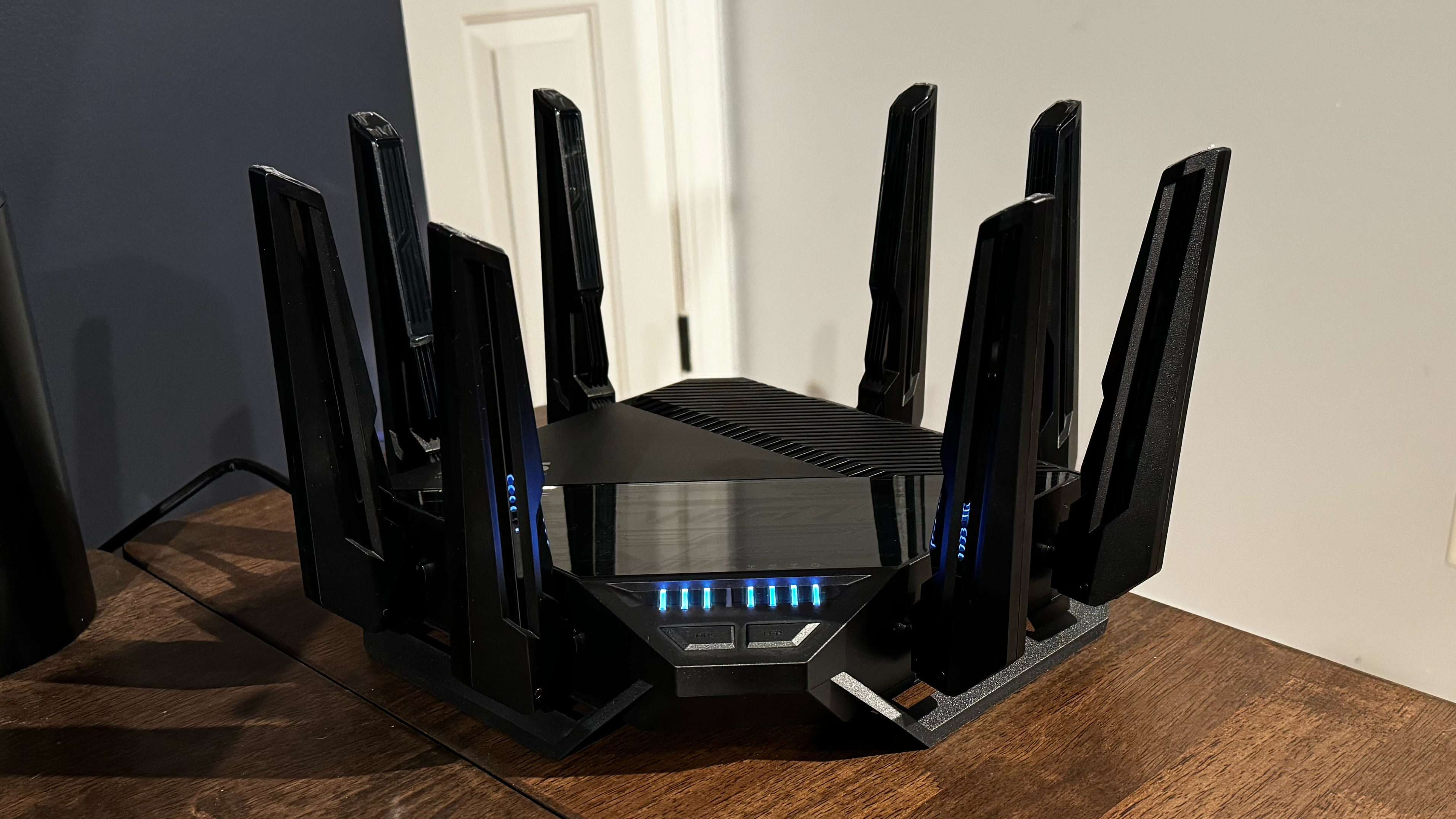
PC World, citing a MediaTek whitepaper, reports that instead of increasing the physical data transfer rate beyond 23 Gbps offered by Wi-Fi 7, the next-generation Wi-Fi 8—based on IEEE’s 802.11bn Ultra High Reliability (UHR) specification—will focus on improving connection reliability and user experience rather than on theoretical performance.
Traditionally, new Wi-Fi iterations (as specified by IEEE 802.11 standards) have focused on maximizing data transfer rates by increasing channel bandwidth and number of channels and introducing new modulation methods. With Wi-Fi 7, the maximum PHY rate is 23 Gbps, though nobody expects to hit speeds that high. Also, the reliability of high-speed Wi-Fi connections leaves much to be desired. To that end, the next-generation Wi-Fi 8 iteration will not increase theoretical speed but will introduce new features designed to improve real-world performance and boost connection reliability.
On a high level, Wi-Fi 8 (802.11bn) resembles Wi-Fi 7 (802.11be): it uses 2, 4, 5, and 6GHz bands, the same modulation (4096 QAM), eight spatial streams, MU-MIMO, multiple OFDMA, and a maximum channel bandwidth of 320MHz.
However, according to the MediaTek paper, the new spec introduces several key features designed to improve real-world performance and connection speeds: Coordinated Spatial Reuse (Co-SR), Coordinated Beamforming (Co-BF), Dynamic Sub-Channel Operation (DSO), and enhanced Modulation Coding Scheme (MCS). Remember that we are talking about the standard as MediaTek sees it. Some features could be mandatory, while others could end up being optional.
The Coordinated Spatial Reuse (Co-SR) feature addresses varying signal strength between nearby devices and distant access points in high-density office scenarios. The capability enables APs to adjust and coordinate their power levels dynamically depending on the distance between devices and other APs to maintain the right signal strength. According to MediaTek’s preliminary testing, this can improve overall system efficiency by 15%—25%.
Similarly, Wi-Fi 8’s Coordinated Beamforming (Co-BF) advances previous beamforming technology by coordinating signal direction among multiple access points. This technology allows the system to avoid sending signals to areas and devices that are not needed, reducing interference and concentrating the signal toward active devices. In MediaTek’s tests, Co-BF has improved throughput by 20%—50% in setups involving mesh networks shared in public spaces and some homes.
Dynamic Sub-Channel Operation (DSO) capability enables the network to assign sub-channels based on device requirements and abilities, increasing efficiency and boosting throughput by up to 80% (for advanced devices) while potentially avoiding bottlenecks.
Wi-Fi 8 will also incorporate refined data rates with additional levels in the Modulation Coding Scheme (MCS) lookup table, allowing devices to make smoother transitions in connection quality as they move through different areas. By adding finer gradations, such as a 16-QAM coding rate, Wi-Fi 8’s MCS promises to reduce sudden drops in datarates, enhancing overall transmission stability and improving bandwidth by 5% to 30%, depending on the exact scenario.
The final Wi-Fi 8 standard is projected to be completed in 2028, and initial products based on the draft specification are anticipated in early 2028, pending regulatory approvals.